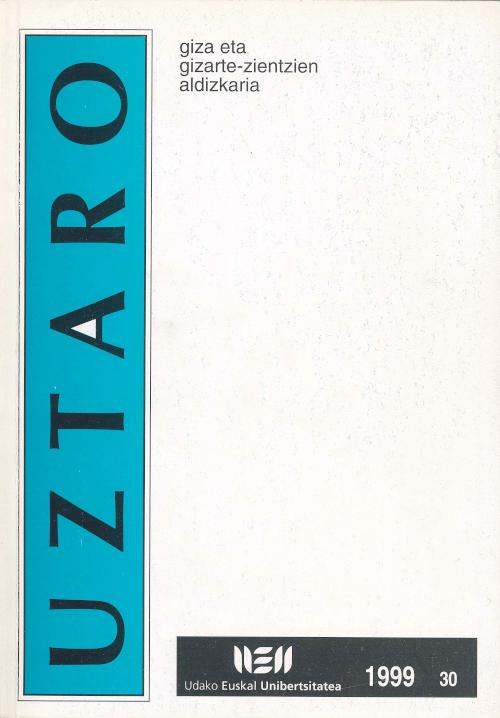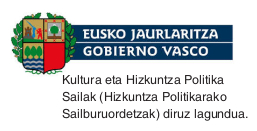Euskal etnogenesia, akulturazioa eta hizkuntzen arteko kontaktuen garrantzia (Itzulpena)
Abstract
In an interdisciplinary approach, processes of ethnic fusion and of language contacts in the Basque country are investigated. Human genetics has confirmed the long continuity of settlement in the Basque country. The Basque people and their language have emerged out of an ethnic fusion in which several pre-Indo-European populations participated, among them groups affiliated to the Caucasian genetic stock. Processes of a long-term acculturation in Basque-speaking communities started in late antiquity when, via the influence of Latin as a language of prestige, the lexical structures of Basque were partly reshaped. Social contacts between Basques and non-Basques were minimal in the Roman era but intensified in post-Roman times. Evidence of this are the foreign elements in Basque kinship terminology which stem from Romance sources.Downloads
Download data is not yet available.
License
Copyright (c) 1999 Uztaro

This work is licensed under a Creative Commons Attribution-NonCommercial-ShareAlike 4.0 International License.
Downloads
Published
1999-09-09
How to Cite
López de Arana, M., & Lopez de Arana, I. (1999). Euskal etnogenesia, akulturazioa eta hizkuntzen arteko kontaktuen garrantzia (Itzulpena). Uztaro. Giza Eta Gizarte-Zientzien Aldizkaria, (30), 111–129. Retrieved from https://aldizkariak.ueu.eus/index.php/uztaro/article/view/4016
















